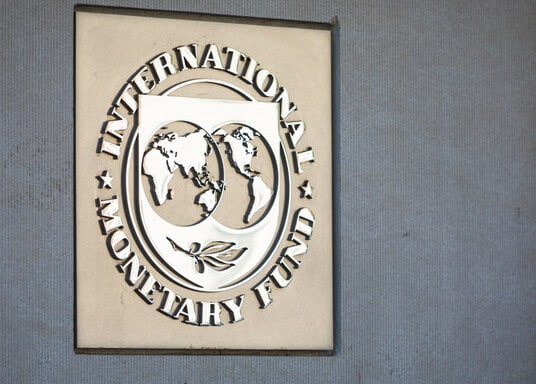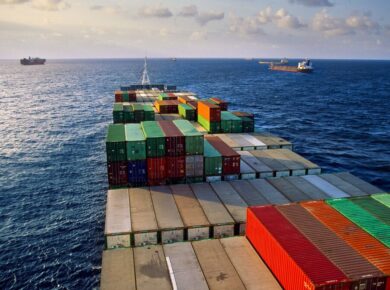According to the IMF, Saudi Arabia is set to benefit from OPEC production cuts due to a boost in oil prices.
Saudi Arabia is set to benefit from OPEC production cuts, thanks to a boost in oil prices, according to the International Monetary Fund (IMF).
The OPEC+ alliance, which includes Saudi Arabia and other major oil-producing countries, has been working to limit production in order to prop up oil prices. This strategy has paid off, with oil prices recently hitting their highest levels in years.
The IMF believes that this boost in oil prices will be particularly beneficial for Saudi Arabia, which is one of the world’s largest oil producers. The country has been grappling with economic challenges in recent years, including the fallout from the COVID-19 pandemic and declining oil revenues.
The IMF’s recent World Economic Outlook report notes that “higher oil prices will provide much-needed support to the fiscal and external balances of oil-exporting countries, including Saudi Arabia.” The report also notes that Saudi Arabia has taken steps to diversify its economy and reduce its reliance on oil revenues, but that the country will still benefit from the recent increase in oil prices.
The OPEC+ alliance has been working to limit oil production since early 2017, in an effort to stabilize oil prices. The group has had to navigate a number of challenges along the way, including disagreements over production targets and the impact of the COVID-19 pandemic on global oil demand.
Despite these challenges, the OPEC+ alliance has largely succeeded in its goal of stabilizing oil prices. The recent boost in prices is a testament to the effectiveness of the alliance’s production cuts.
The recent increase in oil prices has been driven by a number of factors, including the continued impact of the COVID-19 pandemic on oil supply and demand. With many countries still struggling to contain the virus, oil demand has remained relatively weak in some parts of the world.
In addition to the impact of the pandemic, the recent increase in oil prices has also been driven by geopolitical tensions in the Middle East, as well as a rebound in global economic growth. These factors have helped to support oil prices, even as the OPEC+ alliance has gradually increased production levels in recent months.
While the boost in oil prices will be beneficial for Saudi Arabia, the country still faces significant economic challenges. In addition to the impact of the COVID-19 pandemic, Saudi Arabia has been grappling with declining oil revenues in recent years, as well as a need to diversify its economy.
The Saudi Arabian government has taken steps to address these challenges, including implementing economic reforms and investing in non-oil industries. These efforts have helped to mitigate the impact of declining oil revenues and support economic growth in the country.
Despite these efforts, however, Saudi Arabia’s economy remains heavily reliant on oil revenues. The recent boost in oil prices will help to support the country’s fiscal and external balances in the short term, but longer-term solutions will be needed to ensure the country’s economic stability.
Looking ahead, the OPEC+ alliance is likely to continue its efforts to stabilize oil prices and limit production. This strategy has proven effective in the past, and the recent boost in oil prices is a testament to the success of the alliance’s efforts.
For Saudi Arabia, the recent increase in oil prices is a welcome development, as the country continues to work to address its economic challenges. While longer-term solutions will be needed, the boost in oil prices is a positive sign for the country’s economic future.
Read More on OPEC






สายคอนโทรล
… [Trackback]
[…] There you will find 92460 additional Information on that Topic: ceoweeklyuae.com/according-to-the-imf-saudi-arabia-is-set-to-benefit-from-opec-production-cuts-due-to-a-boost-in-oil-prices/ […]
December 18, 2024PGSLOT เล่นเกมไหนก็ได้เงิน
… [Trackback]
[…] Find More Information here on that Topic: ceoweeklyuae.com/according-to-the-imf-saudi-arabia-is-set-to-benefit-from-opec-production-cuts-due-to-a-boost-in-oil-prices/ […]
December 19, 2024Telegram中文版
… [Trackback]
[…] Find More Info here on that Topic: ceoweeklyuae.com/according-to-the-imf-saudi-arabia-is-set-to-benefit-from-opec-production-cuts-due-to-a-boost-in-oil-prices/ […]
December 24, 2024เว็บปั้มไลค์
… [Trackback]
[…] Read More Information here on that Topic: ceoweeklyuae.com/according-to-the-imf-saudi-arabia-is-set-to-benefit-from-opec-production-cuts-due-to-a-boost-in-oil-prices/ […]
January 4, 2025ร้านแบตเตอรี่ใกล้ฉัน
… [Trackback]
[…] Find More on that Topic: ceoweeklyuae.com/according-to-the-imf-saudi-arabia-is-set-to-benefit-from-opec-production-cuts-due-to-a-boost-in-oil-prices/ […]
January 23, 2025fox888
… [Trackback]
[…] Information on that Topic: ceoweeklyuae.com/according-to-the-imf-saudi-arabia-is-set-to-benefit-from-opec-production-cuts-due-to-a-boost-in-oil-prices/ […]
January 25, 2025pk789
… [Trackback]
[…] Find More on to that Topic: ceoweeklyuae.com/according-to-the-imf-saudi-arabia-is-set-to-benefit-from-opec-production-cuts-due-to-a-boost-in-oil-prices/ […]
January 25, 2025สูตรสล็อต
… [Trackback]
[…] Read More Information here on that Topic: ceoweeklyuae.com/according-to-the-imf-saudi-arabia-is-set-to-benefit-from-opec-production-cuts-due-to-a-boost-in-oil-prices/ […]
January 26, 2025kc9
… [Trackback]
[…] Read More on on that Topic: ceoweeklyuae.com/according-to-the-imf-saudi-arabia-is-set-to-benefit-from-opec-production-cuts-due-to-a-boost-in-oil-prices/ […]
January 30, 2025pakong188
… [Trackback]
[…] Read More on that Topic: ceoweeklyuae.com/according-to-the-imf-saudi-arabia-is-set-to-benefit-from-opec-production-cuts-due-to-a-boost-in-oil-prices/ […]
January 30, 2025สมัคร pg slot
… [Trackback]
[…] Read More to that Topic: ceoweeklyuae.com/according-to-the-imf-saudi-arabia-is-set-to-benefit-from-opec-production-cuts-due-to-a-boost-in-oil-prices/ […]
February 3, 2025thailand tattoo
… [Trackback]
[…] Find More here on that Topic: ceoweeklyuae.com/according-to-the-imf-saudi-arabia-is-set-to-benefit-from-opec-production-cuts-due-to-a-boost-in-oil-prices/ […]
February 4, 2025bus ticket online
… [Trackback]
[…] Read More Information here on that Topic: ceoweeklyuae.com/according-to-the-imf-saudi-arabia-is-set-to-benefit-from-opec-production-cuts-due-to-a-boost-in-oil-prices/ […]
February 28, 2025BAU_2025
… [Trackback]
[…] Information on that Topic: ceoweeklyuae.com/according-to-the-imf-saudi-arabia-is-set-to-benefit-from-opec-production-cuts-due-to-a-boost-in-oil-prices/ […]
March 1, 2025789bet
… [Trackback]
[…] Find More Information here on that Topic: ceoweeklyuae.com/according-to-the-imf-saudi-arabia-is-set-to-benefit-from-opec-production-cuts-due-to-a-boost-in-oil-prices/ […]
March 3, 2025ปั้มติดตาม
… [Trackback]
[…] Read More here to that Topic: ceoweeklyuae.com/according-to-the-imf-saudi-arabia-is-set-to-benefit-from-opec-production-cuts-due-to-a-boost-in-oil-prices/ […]
March 5, 2025บาคาร่าวัววัว เล่นยังไง
… [Trackback]
[…] Read More on to that Topic: ceoweeklyuae.com/according-to-the-imf-saudi-arabia-is-set-to-benefit-from-opec-production-cuts-due-to-a-boost-in-oil-prices/ […]
March 16, 2025https://www.aguarda.es/carreiras-populares-festas-do-monte-celebranse-este-sabado/
… [Trackback]
[…] Find More here on that Topic: ceoweeklyuae.com/according-to-the-imf-saudi-arabia-is-set-to-benefit-from-opec-production-cuts-due-to-a-boost-in-oil-prices/ […]
April 26, 2025Brians Club
… [Trackback]
[…] Find More here to that Topic: ceoweeklyuae.com/according-to-the-imf-saudi-arabia-is-set-to-benefit-from-opec-production-cuts-due-to-a-boost-in-oil-prices/ […]
May 2, 2025Mostbet
… [Trackback]
[…] Here you can find 242 additional Info to that Topic: ceoweeklyuae.com/according-to-the-imf-saudi-arabia-is-set-to-benefit-from-opec-production-cuts-due-to-a-boost-in-oil-prices/ […]
May 3, 2025ถ่ายโดรนสงขลา
… [Trackback]
[…] Find More here on that Topic: ceoweeklyuae.com/according-to-the-imf-saudi-arabia-is-set-to-benefit-from-opec-production-cuts-due-to-a-boost-in-oil-prices/ […]
May 3, 2025พิมพ์โปสการ์ด
… [Trackback]
[…] Find More to that Topic: ceoweeklyuae.com/according-to-the-imf-saudi-arabia-is-set-to-benefit-from-opec-production-cuts-due-to-a-boost-in-oil-prices/ […]
May 6, 2025เช็คสลิปโอนเงิน
… [Trackback]
[…] There you can find 30238 more Info on that Topic: ceoweeklyuae.com/according-to-the-imf-saudi-arabia-is-set-to-benefit-from-opec-production-cuts-due-to-a-boost-in-oil-prices/ […]
May 7, 2025